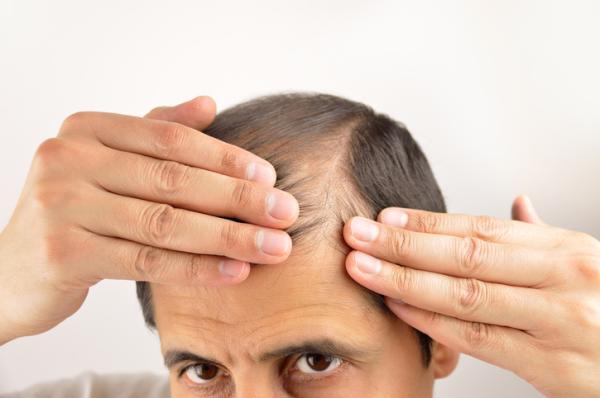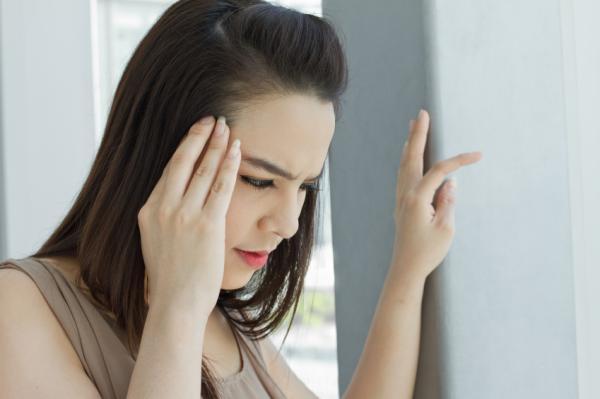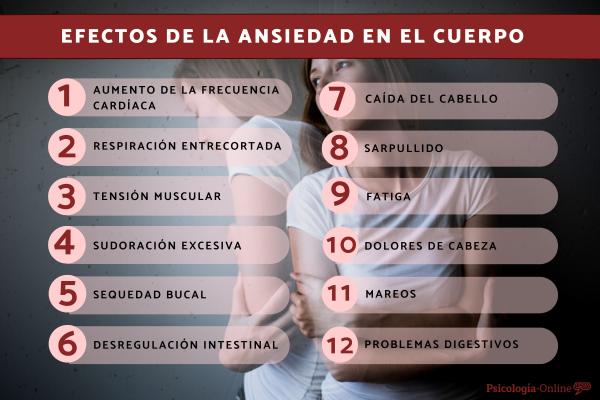Currently, society imposes demands that prevent relaxation of both the body and the mind. This continuous stress and anxiety triggers a host of unpleasant responses that can have a negative impact on a person’s life, despite attempts to minimize daily discomforts. In fact, you may have ever witnessed a situation in which a person starts yelling or hitting something in public for reasons that did not require that reaction. However, the truth is that the initial origin of emotions does not have to come only from that precious moment.
In this PsychologyFor article we explain what they are. the effects of anxiety on the body.
Incrise of cardiac frecuency
What happens when your body can’t handle anxiety? It is common for the heartbeat to begin to feel stronger as a result of the incrise of cardiac frecuency. In this way, blood flow is greater during periods of high anxiety in crisis situations.
Shortness of breath
When anxiety manifests in the body, difficulties inhaling and exhaling air continuously. This results in labored breathing as less air can enter the lungs. Likewise, anxiety produces a limitation of lung capacity; This causes an effort to breathe normally.
Muscle tension
Generally speaking, being faced with an anxious situation can cause certain muscles in the body to become tense. Consequently, the muscles will contract which will make progressive relaxation impossible during moments of rest.
However, it should be noted that muscle tension will be directly related to the person who suffers from moments of anxiety.
Excessive sweating
In some specific moments of anxiety, excessive sweating in the body. In these cases, the eccrine glands that are located in most areas of the skin begin to work repetitively, which causes an increase in sweat as a result of body temperature.
dry mouth
The mouth is the area of the human body responsible for the emission of sounds and production of saliva and is used for the food digestion process. When someone is going through periods of anxiety, another effect that appears on the body is dry mouth. This has a negative impact on food processing and can produce alterations in the central nervous system.
Intestinal dysregulation
The intestinal area also suffers the effects of anxiety on the body. As a result of anxiety, the intestine begins to function altered against food residues that must be discarded through the rectum. Therefore, it is impossible to process the elements found in the intestine and intense body pain can arise.
Hair loss
Although this effect does not happen in all people who suffer from anxiety, hair loss or alopecia It is another of the signs typical of this painting. This is because suffering from high levels of nervousness causes cortisol, a hormone linked to stress, to be released in response to feared situations.
If you want to know more about this topic you can consult the article Nervous alopecia: what it is, symptoms and treatment.

Rash
The rash or rash on the skin is another effect of anxiety on the body. This symptom consists of a skin inflammation as a consequence of the organism unsuccessfully expressing an ongoing conflict. It is important to detect the exact cause of the rash by taking this symptom into account in a patient’s clinical presentation.
Fatigue
The feeling of body fatigue It can also be linked to high levels of anxiety. In some cases, fatigue is due to poor production of chemicals that influence the neuronal connections that take place in the central nervous system. Given this, anxiety can cause fatigue and body weakness.
Headaches
This is one of the most frequent effects of anxiety in the body and is another way to respond to difficult situations to go through. Nervous tension can cause headaches that vary in intensity and, in some cases, this condition can lead to migraines.
Dizziness
In moments of extreme anxiety, the human body may have altered spatial perception. This has the effect of feeling of instability and lack of balance in certain places. For this reason, when someone has difficulty dealing with anxiety, dizziness may appear as a result of a deregulation of the central nervous system.
In this article you will find How to remove dizziness due to anxiety.

Digestive problems
Sometimes, digesting food can be a complication in anxious situations. This is because, in these cases, the digestive system begins to stop its basic functions, which can cause digestive problems that lead to severe body pain.
This article is merely informative, at PsychologyFor we do not have the power to make a diagnosis or recommend a treatment. We invite you to go to a psychologist to treat your particular case.
If you want to read more articles similar to Effects of anxiety on the body we recommend that you enter our Clinical Psychology category.
Bibliography
- Book Racovsky, A. (2016). A journey of self-discovery…Anxiety along the way. University of the Republic of Uruguay, Faculty of Psychology.









